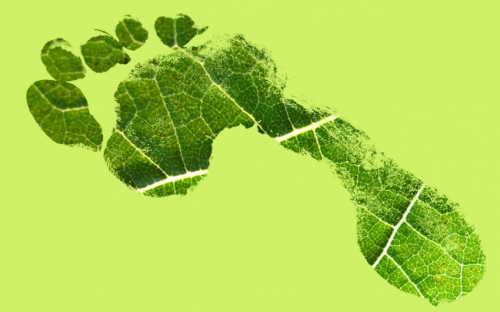25 ways for Zimbabweans to reduce their carbon footprint and bills
Every Zimbabwean is responsible for some amount of Carbon Dioxide (CO2) emissions into the atmosphere induced by our daily activities, known as ‘Carbon Footprint’. Climate Change/Global Warming is being caused by the collective increase of CO2 emissions into the earth’s atmosphere from human activity all over the world. As Zimbabweans and citizens of this planet it is our responsibility to reduce our carbon footprint to counter the effects of climate Change. The following points are for everyday Zimbabweans to follow, therefore reducing their impact on the planet, saving energy, which translates to savings. Zimbabweans need to be encouraged to ‘Go Green’ to achieve a sustainable future.
Note; some of these suggested points are already being practiced, but the people who are unaware unconsciously do a disservice to the planet.
1. Take Public Transport or Carpool
Research shows that drivers spend 18 days of the year in a car, each car emitting its own weight in CO2. Sharing a car/Riding the bus or kombi to work or school uses less fuel, emits less and slashes the number of cars on the road. It would be beneficial for Zimbabwe to have a good public transport system, which includes local trains that can transport large numbers of people efficiently. An example would be a train system going between Harare and Chitungwiza where 1 million people live, with most commuting to Harare for work, school and shopping etc. With Oil peak predicted to be reached in 2015 and to run out by 2050, we need to be conservative with the way we use our fuel.
2. Shift gears sooner
For those that do drive, it is advised you shift into a higher gear as soon as possible, before 2,500 rpm (revs per minute) on a petrol car and 2,000 rpm on a diesel. If you do this right you will find yourself saving fuel because your engine is maintaining a higher speed without working as hard.
3. Use Hybrid cars
Although they are pricier, over the lifetime of the vehicle you will find yourself more than covering the difference in fuel savings.
4. Walk close distances
Sometimes there is no need to use a vehicle for short distance, like going to the local shops or visiting friends nearby. Save your fuel and walking is naturally very good for the health.
5. Take a shower
Uses about 80% less energy compared to a bath, and uses less water too. You can install a ‘low flow’ shower head to limit the amount of water being used. For those accustomed to ‘bucket baths’, you are doing a great service to the planet.
6. Use cold water
When washing and rinsing clothes, 90% of the energy used goes towards heating the water. Unless you are trying to kill germs on your clothes
7. Replace light bulbs with CFL bulbs (Compact Fluorescent)
Can last up to 15 times longer and use up to 8o% less energy than regular light bulbs and reduces your electric bill. Switching off your lights when they are not in use also saves energy.
8. Unplug Your Gadgets
Unplug your phone charger, laptop and other gadgets when you’re not using them. Some appliances consume a significant amount of electricity even when they are switched off. Ever notice how your phone charger can get hot with no phone on it? Adopting these practices can save you $100 each year.
9. Choose a Laptop over a Desktop
A laptop can be up to 80% more energy-efficient than a desktop because of battery life, energy-efficient LCD screens, hard drives, CPUs and adaptors.
10. Home temperature
Keep your curtains open during the day in the winter to let in sunlight, and close them at night to keep in warmth, reduces heater usage. During the summer, close the curtains during the day to keep out extra sunlight and open them at night to moderate the temperature, or even open the windows to let in a cool breeze. This will limit the amount of times you need to use fans and air conditioning.
11. Don’t buy bottled water
There is an environmental toll from the plastic waste and high food miles from the distance travelled by the water before getting to the supermarket (food miles - distance food travels from its origin to the final destination). Tap water (excluding Harare) is perfectly suitable for consumption, especially if you use a filtration pitcher.
12. Buy local produce
If you keep things local it will reduce the amount food miles and fuel required to get the food from the farm to your fridge. The same concept goes for other goods and services; it also boosts the local economy.
13. Eat in season produce
Out of season produce has higher costs on refrigeration, ripening process, storing and transportation. It comes with a high price tag in order to get it from where it is in-season to where it is being consumed.
14. Go Digital
Read newspaper online rather than in print, you are saving trees and paper printing costs. If internet is not available make sure you recycle your paper.
15. Chose Energy Efficient Kitchen Appliances
Microwaving your food is faster and often uses less energy than the stove. On average a meal takes 15 minutes to cook in the microwave versus one hour in the stove.
16. Using rechargeable batteries
Can save a lot of kg off of your carbon footprint by the time the batteries die for good.
17. Use the top shelf of the ove
If you are using the stove, your food will cook faster on the upper shelf of the oven because heat rises.
18. Using ceiling fans
Instead of air conditioning is sure of saving. If you live in a climate where you rely heavily on your A/C this could save you up to a ton in CO2 emissions.
19. Don’t use black bin bags
Because of the black pigmentation these trash bags cannot be recycled. A better option is to use white trash bags and the best option is of course, use none.
20. Compost heaps
Having organic gardens and compost heaps to grow your own food saves money and is good for the environment.
21. Use certified wood
From responsibly managed forests (e.g. Gum tree firewood). Meaning, logging in those forests is being monitored to prevent deforestation. Wood bought on the road side is cut illegally from our forests, causing deforestation, loss of habitat and biodiversity, affecting the amount of CO2 being processed back to oxygen by trees and plants.
22. Plant a Tree
Is the most efficient way to help the environment. Not only do they provide shade and oxygen but they consume CO2 in atmosphere. A single young tree can absorbs 6kg of CO2 each year. That amount will climb to 22kg annually as trees mature. Just one 10-year-old tree releases enough oxygen into the air to support two human beings.
23. Use both sides of the paper
When printing in the office use both sides of the paper and reduce paper consumption, saving money and trees.
24. Use Renewable Energy
Where possible use solar, biogas, wind and other forms of green energy. The future is green energy which is cleaner and has no environmental impact. We need to move away from nonrenewable energy forms like coal, which are causing the increase of CO2 into the atmosphere.
25. Reduce, Reuse and Recycle
Remember and Practice the 3R’s.




